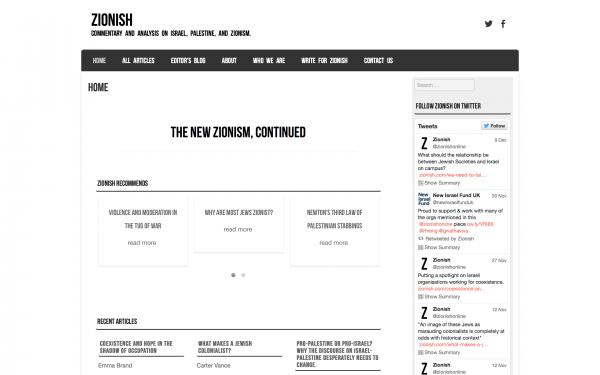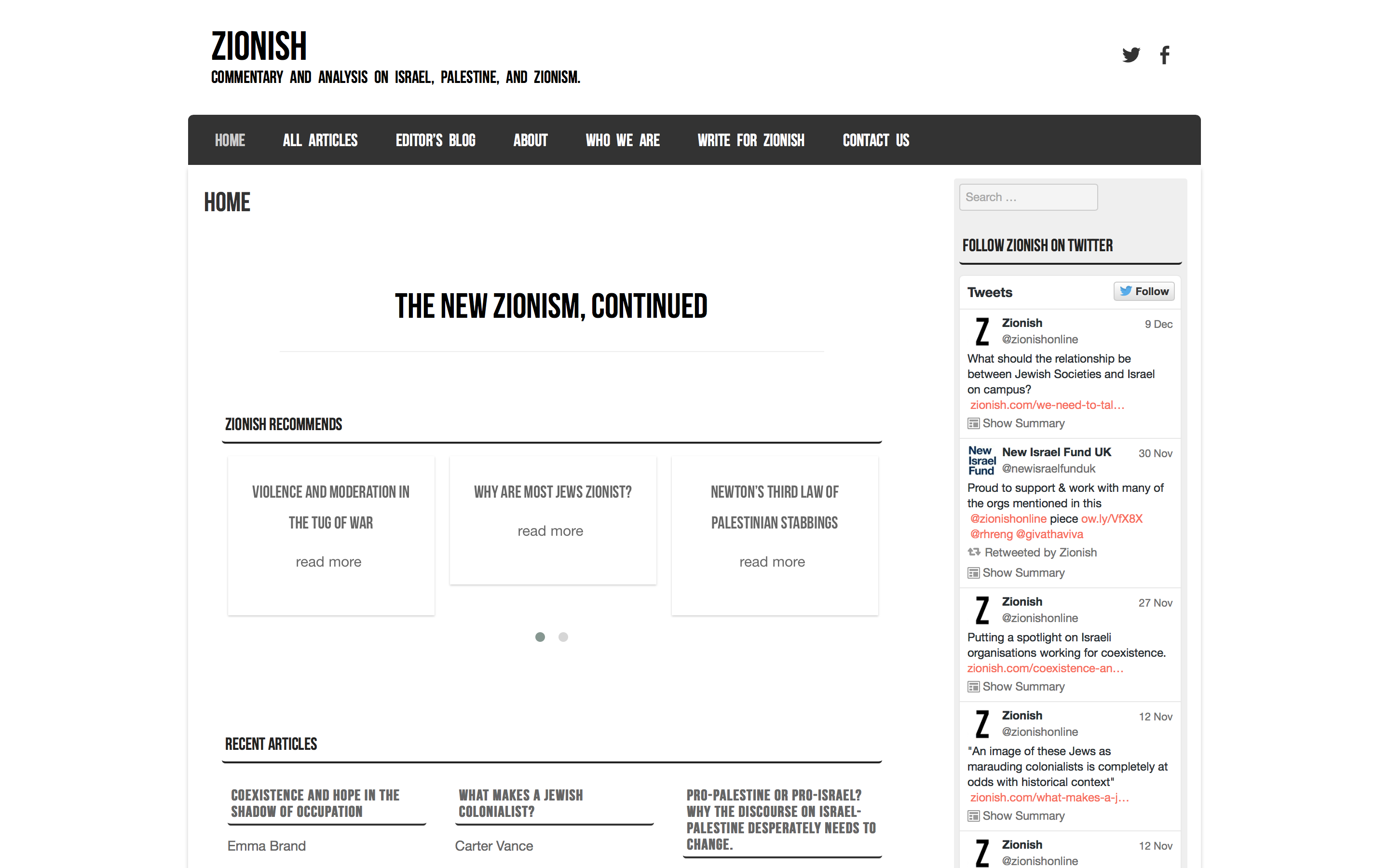
There seem to be two choices in mainstream Jewish life: Either you’re pro-Zionism, or you’re anti-Zionism. A new online publication, Zionish, rejects that binary.
“Our stance is to reject the traditional stances,” Zionish editor Aaron Simons told New Voices via email.
“People conceive of the Israeli-Palestinian conflict as one where you have to be either super-Zionist pro-Israel in everything you think and believe, or militantly anti-Zionist and pro-Palestine. We reject the binary.”
Simons launched Zionish with fellow Jewish British students this past October, but said the publication is open to anyone, including non-Jewish and non-British writers.
He added that “feedback has been pretty positive,” particularly from young people.
“Students in particular have expressed support for an outlet where they can take on the Zionist label without being grouped in with typical right-wing hasbara, and can criticise Israel without being associated with hard left anti-Zionist politics,” he said.
“Many older members of the Jewish community have, perhaps surprisingly, also given positive feedback, although they’re also often more hesitant on our more critical pieces.”
“It’s still very brave to do what they’re doing in the U.K.,” said Jonathan Katz, who went to graduate school at the University of Oxford and has previously written for New Voices.
Still, there are different aspects of diversity that Zionish can work on, Katz said, from the way Palestinians view these issues to a narrative of Jewish history that isn’t centered around Zionism.
“It’s a very Ashke-normative site in some ways,” Katz added. “It does a better job than some other leftist sites, [but there is] the other narrative … as in, other than what they claim.
“Extending a bit beyond the top U.K. universities would be cool.”
The publication has a a staff of 12. All of the writers either attend or have attended Cambridge University, Algoma University, Oxford University, or St Andrews University.
“The content is definitely more consistent, but it’s [also] a small slice of British Jewry,” Katz said.
Though the writers come from a small group of universities, Simons said he believes they still “bring a range of views to the table.”
“It’s important for us to show that our stance is not some fringe minority,” he said, “but a real and growing movement in both the student and Jewish community that deserves to be heard.”
The publication also brings certain historical aspects of Judaism to light.
“I think they do a really good job of having a nuanced and educated discussion about how Zionism came to be so predominant in the Jewish community, or how communities other than secular Ashkenazim came to be Zionist,” Katz said.
“There is very much a commitment to history, [but it’s] a commitment to the complexity of history. They do it in a way that’s not patronizing.”
In the immediate future, Simons hopes to cover topics ranging from the Israeli-Palestinian conflict and what it means to be Jewish to Zionism and anti-Arab racism. And regardless of whether readers agree with Zionish’s articles, the editor’s hope is that those who read the publication do so with an open mind.
“This is important because there is such a siege mentality when it comes to discussing Israel and Palestine,” Simons said. “Both sides turn away from any view deemed even vaguely critical of their own.
“Both sides seem paranoid of open discussion for fear it will challenge their dogma, but that’s exactly the point.”
Nicole Zelniker is a student at Guilford College.

